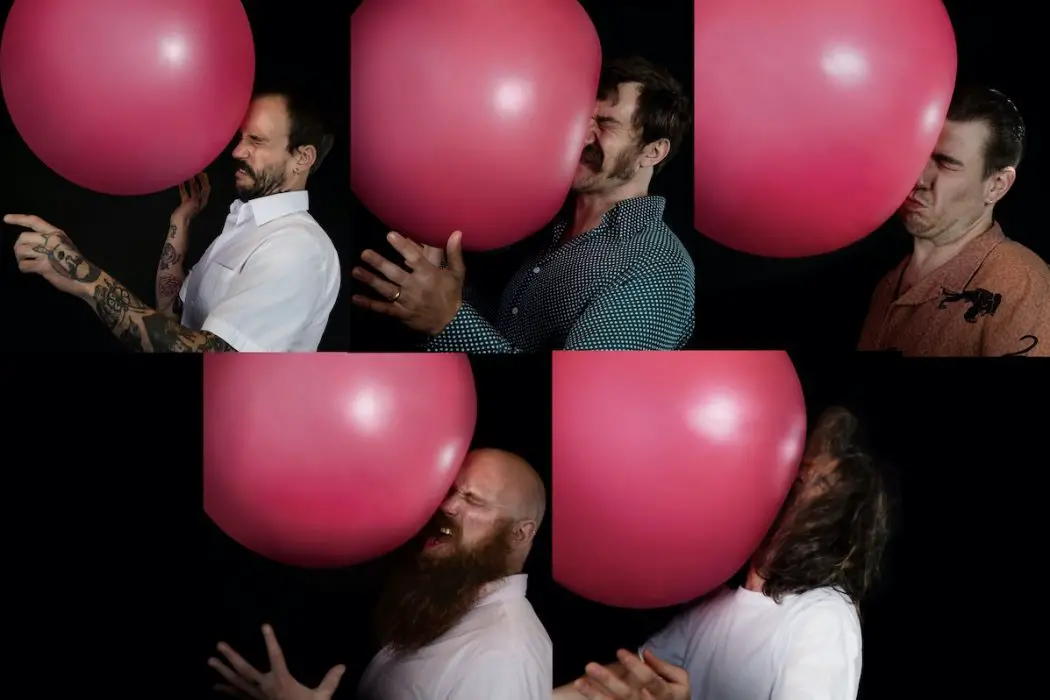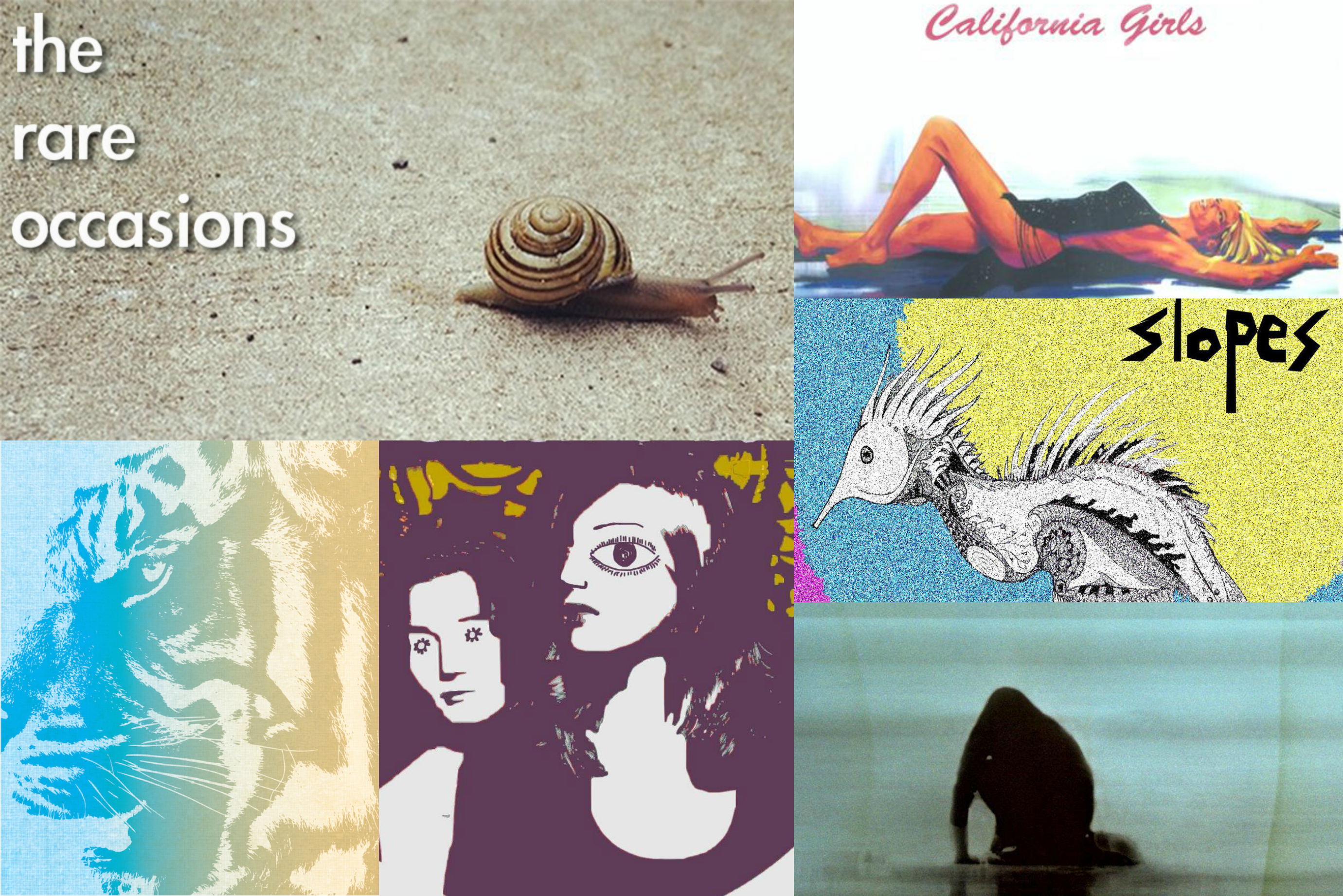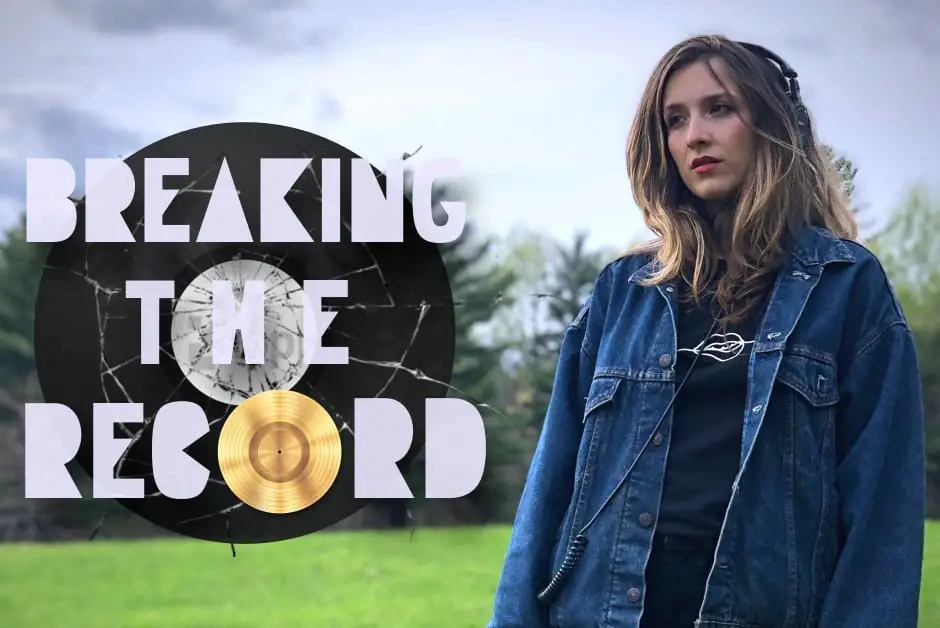The punk rock evangelist of self-care Joe Talbot talks about how unity, hip-hop, and momentary self-acceptance shaped his life and IDLES’ new record, ‘Ultra Mono’.
Stream: ‘Ultra Mono’ – IDLES
IDLES was a way of saving my own life.
It’s mid-morning when IDLES’ frontperson Joe Talbot answers the phone, pausing momentarily to put headphones in and head out the door. Full of coffee, he talks passionately about his band’s new record, as well as his personal successes and failings over the past couple of years.
Considered by some a divisive figure, Talbot is chatty and honest. He’s as willing to talk about how great IDLES are as how “messed up” he is—often in the same sentence.
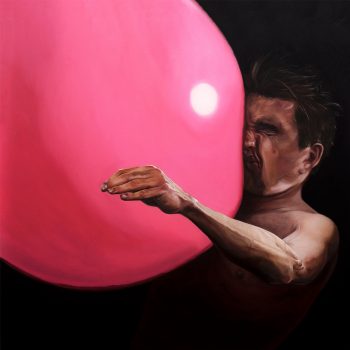
Ultra Mono, the much awaited follow-up to 2018’s near-perfect Joy as an Act of Resistance, is equally as bombastic and earnest. Its 42 minutes expands the IDLES sound, while never losing sight of the band’s permanent societal targets: Inequality, fascism and self-doubt. Tracks such as “Grounds” adds a Yeezus feel beat to the IDLES canon, while “Model Village” could be the band’s most biting track to date.
Cutting a very sage figure, Talbot dispenses the advice of someone constantly working on improving themselves.
The byproduct of a life of pain and privilege, this open-book style of expression finds itself filtered through every corner of the record.
Ultra Mono is a manifesto on how to live. It’s a promise to care for yourself, love yourself, and be kind to yourself – and by extension, all those around you. Every IDLES record has aimed to build community and unity, something that can only come from this self-care. If the art of self-care is radical, then consider Ultra Mono your guerrilla soundtrack.
I just want to progress and make people feel loved and feel safe. That’s all I want for me, so that’s all I can do for other people.
— —
:: stream/purchase Ultra Mono here ::

A CONVERSATION WITH IDLES

What are your thoughts on feelings on the record, now it’s finished?
Joe Talbot: I think it’s the best record we’ve made. I think it’s an amazing record. I love it. It’s as IDLES as IDLES can be, and and it’s good enough that we can move on and try something new.
Why do you think it’s the best record you’ve made?
Joe Talbot: It’s the most concise, the most similar to what we set out to make. It sounds exactly how we wanted it to sound from the start of writing.
Did you enter the studio with an idea of how you wanted album number three to sound?
Joe Talbot: This whole album was about the game plan. It was the title of Ultra Mono as momentary self-acceptance, and how we capture the sounds of self-acceptance as a progressive, unified self with purpose and vigour. So every song was written around that concept, and around how we get it to sound like that in the studio.
How specific are your game plans?
Joe Talbot: Every album has a theme behind it. We start the album with a title that is very pertinent to where we are at that point and then we write everything around that title. I always come up with the title and the title is always around…what can most artistically express where I’m at.
When you listen to Joy As An Act Of Resistance, it can be easy to forget that your development doesn’t end with that record – Ultra Mono is a good reminder of this.
Joe Talbot: It’s all a journey. We’ve got to be as transparent as possible with each record, accept where we are and allow people into that journey. We were never setting ourselves up to be some holier-than-thou, pious, bunch of fucking rat bags who were just talking about “be better.” It’s about being you, and accepting that you’re far from perfect.
Knowing IDLES are such a source of inspiration for so many—and such a lightning rod for criticism—do you get nervous when releasing a record like this?
Joe Talbot: No, because it’s for me. It’s my progress. It’s therapy. I can’t be nervous about being honest. I would only lie awake ay night if I was lying.
Surely the accusations and the, for lack of a better words ''haters,'' must bother you though?
Joe Talbot: Yeah it gets to me a lot. But that’s what Ultra Mono is about: It’s about learning to not see other people’s definition of you as your definition.
Your lyrics are so personal and vulnerable, it’s almost open season for your critics.
Joe Talbot: That’s the only way it has to be for me. It was a way of saving my own life. And it’s what therapy is: You don’t go into therapy talking about everyone else’s experience, everyone else’s behaviour and everyone else’s feelings, you go in talking about your own feelings and your own experiences. That’s why on every record I put out the worst parts of me as well as the best ones. I put out “Never Fight A Man With A Perm” because it’s about me being an absolute prick to people and getting my ass kicked. You know, that’s why “Model Village” is on Ultra Mono: It’s my resentment for growing up in a small town and what that means and how dangerous that status quo can be for people. It’s got to be there, and that’s the therapy, ya know.
What’s your process for self-acceptance?
Joe Talbot: Sobriety, a lot of therapy, surrounding myself with good people, and making music that helps me through it by being transparent and seeing the music as a mirror, and allowing that mirror to go out to the world as much as possible.
Why does IDLES resonate with fans the way it does?
Joe Talbot: Our celebration of imperfection. It allows people to feel comfortable at our shows, to feel safe and be themselves. And to listen to our record with a sense of purpose and progression.
Are you surprised at how much IDLES has resonated with fans?
Joe Talbot: No. Not in an arrogant way, but in like, IDLES was what was missing from my life. And that was on a big scale. I would listen to a lot of music and I couldn’t see it or hear it in the world, so I’m guessing it was missing from a lot of people’s lives. It’s that sense of feeling like you’re something tiny in a huge wave of existence that is love. You just want to feel part of that—I wanted to feel part of that, and I wasn’t feeling part of that. I felt isolated, alone, and angry, so I can only imagine that was how a lot of other people were feeling and I think we’re getting to a point where we’re really articulating that message.
Was it always your dream to change the world through music?
Joe Talbot: No, it still isn’t really. I just want to progress and make people feel loved and feel safe. That’s all I want for me, so that’s all I can do for other people. It’s not about changing the world, it’s about changing people and shifting their narratives to one of self-care instead of self-loathing.
This record has a big hip-hop influence to it, what’s the biggest impact it has on the record?
Joe Talbot: When we had conversations about how we make a sound that has a sense of defiance, self-belief, and strength in numbers, that came from hip-hop, it came from jungle, and it came from Wagner. That practice of making sound a part of your language; not just making sound a way of trying to capture your language but actually it becoming how we speak. Something we learned with this record is that we wrote songs with the production in mind instead of once we’ve written the songs trying to capture it sonically. We wrote the sonics first.
When I first heard the record was hip-hop inspired, I was like ‘oh please tell me Joe doesn’t rap’ and I’m so glad you didn’t.
Joe Talbot: Me too, Christ. I am definitely not a rapper. And that’s the important thing: The difference between celebration and appropriation. I grew up on hip hop, but that doesn’t mean that I am hip-hop. I didn’t come from an underprivileged background, I came from a privileged background. But I learned so much from [hip-hop], that I can only celebrate it. That’s a beautiful thing and that’s what diversity is about. It’s about learning from other cultures and being a better version of where you’re from by allowing difference and celebrating difference as part of your language.
Where does this sage, mindful perspective come from?
Joe Talbot: From having amazing parents, and from having a privileged education. I didn’t go to private school or anything but I had an education. And through going through lots of awful shit. When your mum dies or your daughter dies or you go through 15 years of addiction and you survive it all, you come out knowing what’s important. You either learn from your mistakes or you fucking die.
So following on from that, what keeps you positive?
Joe Talbot: Me. I just keep going. I’ve learned I’ve got to listen to myself, listen to the rhythms and cycles of my behaviours, love myself, forgive myself and give myself that confidence to listen to others and learn from my mistakes and to learn from other people.
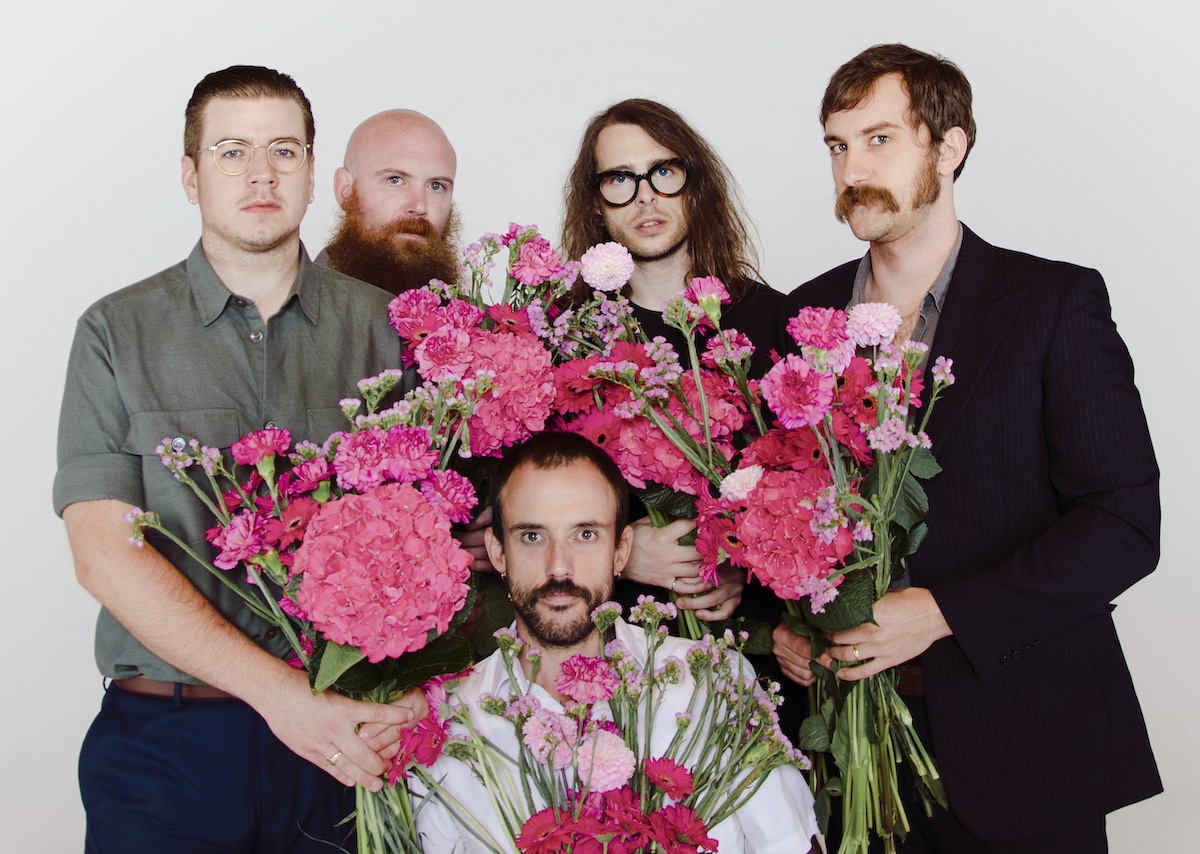
Joy means the world to me personally, because it came at a tough time in my life and it showed me the power of acceptance and loving yourself.
Joe Talbot: What our record did for you, you can do so easily for someone else in the blink of an eye. It could be something as simple as giving someone a smile on the street, could stop them from topping themselves, you never know. But you can only really genuinely smile at the world when you smile at yourself first.
That sounds so simple.
Joe Talbot: It is simple, that’s the point. It’s life that’s complicated. All you ever have, is you right now. You will never have the past, you will never have the future. You will only ever have you, right now. And how you deal with that, and how you perceive that, and how you act out your life, is always ever going to be in the moment. So if you just learn to give yourself a break and listen to yourself in the moment, you’ll give yourself the time and the love to treat other people with care. Empathy kills fascism. That’s as simple as I can put it. Fascism within yourself.
Is there a through line or dominant theme of Ultra Mono?
Joe Talbot: It’s what we go through with everything we’ve ever done. It’s the exploration of self-doubt and self-care, openly in our music in order to progress as individuals. Thus our audience progresses, hopefully, but it’s more about us getting through life and putting it on record so it’s documented for other people to see. Hopefully with positive effects—with progressive effects, more to the point.
Favourite song on Ultra Mono?
Joe Talbot: “Grounds.” The best song we’ve ever written is probably “War” and the best song I’ve ever written is probably “1049 Gotho,” but my favourite song is “Grounds.”
Why is your favourite not the best?
Joe Talbot: Because it’s music, not science. [“Grounds”] is the sound of my inner cheerleader. It’s the sound of everything I grew up listening to that gave me life. It’s the sound of Pharoahe Monch, it’s the sound of AC/DC, it’s the sound of Dizzee Rascal but it’s my language, it’s me. It gets me up in the morning, believing in myself because I’ve written it. Everyone needs a little cheerleader in their heads ya know. A Little Joe with pom-poms dancing around Big Joe’s head.
Why do you hate being called a punk band?
Joe Talbot: I don’t hate being called a punk band. I don’t hate it at all. I just think it’s important to always question your labels. If people feel the need to classify you, it’s important as a subversive artist to question those labels. To use punk as an adjective for something that’s subversive and impactful takes away from soul music, blues, calypso, reggae, dancehall, jungle, garage, grime, all the other genres that I’d say are probably even more subversive and more impactful on communities than punk ever was. On a grand scale I understand why punk’s important, absolutely, and if someone said we’re a punk band in a record store I wouldn’t bat an eyelid; of course we sound like a punk band. But it’s important as a language tool to always question your classifications because if you allow it, it disallows you the opportunity to flourish in whatever the fuck you want to do.
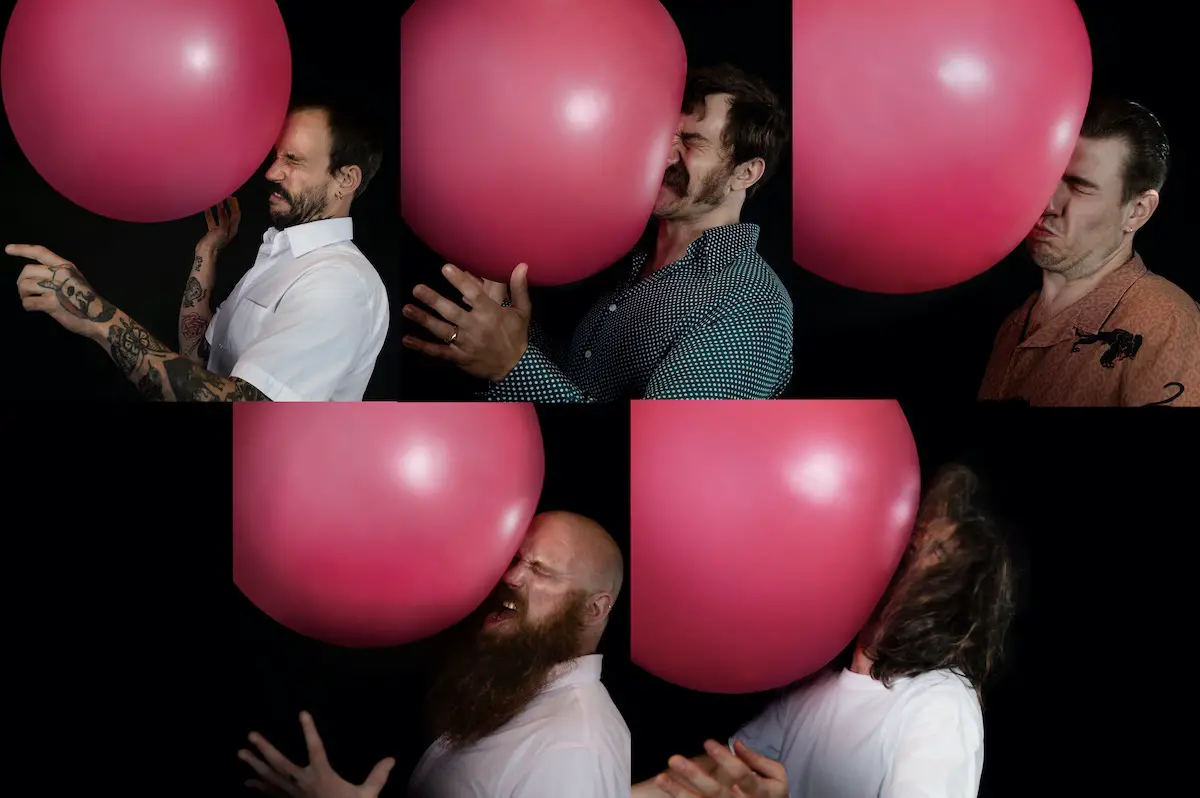
What do you want people to walk way thinking or feeling?
Joe Talbot: I am I.
And what does that mean to you?
Joe Talbot: It means I am everything I can be right now, and that is a beautiful thing and I need to move forward believing in myself and having the confidence to use empathy as a tool to kill fascism.
That’s beautiful. And it also ties into IDLES’ career-long call for unity and community.
Joe Talbot: Yeah, of course, always. The processes of everything we’ve gone through as a band is to try and make people feel and realize why they’ve done the things they have and how they can love themselves enough to feel the safety and the confidence to be part of something bigger than themselves that they might not understand just yet but could end fascism. Community and unity is basically only built by love and empathy and that can only come when you start at your own self.
Joe Talbot: IDLES be the remedy. Actually, IDLES aren’t the remedy for what the world needs right now. You are what the world needs right now. That’s it. I am what the world needs right now, and you are what the world needs right now. We’ve just got to start thinking, “I am the point of change.”
— —
:: stream/purchase Ultra Mono here ::
Stream: ‘Ultra Mono’ – IDLES
— — — —

Connect to IDLES on
Facebook, Twitter, Instagram
Discover new music on Atwood Magazine
? © Nwaka Okparaeke
:: Stream IDLES ::

